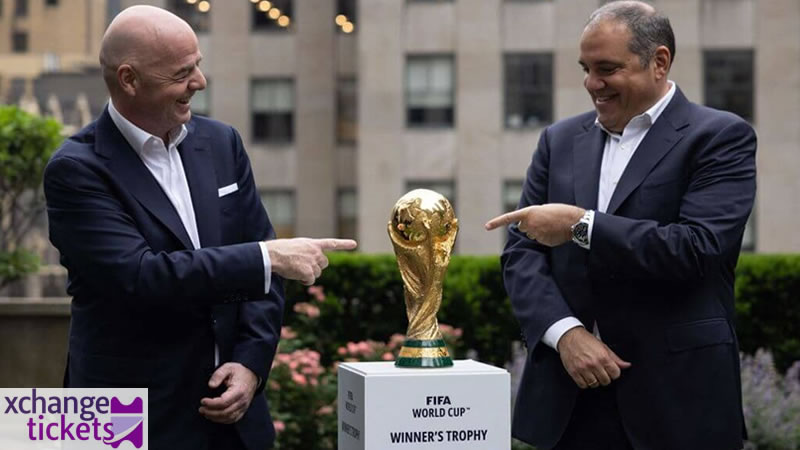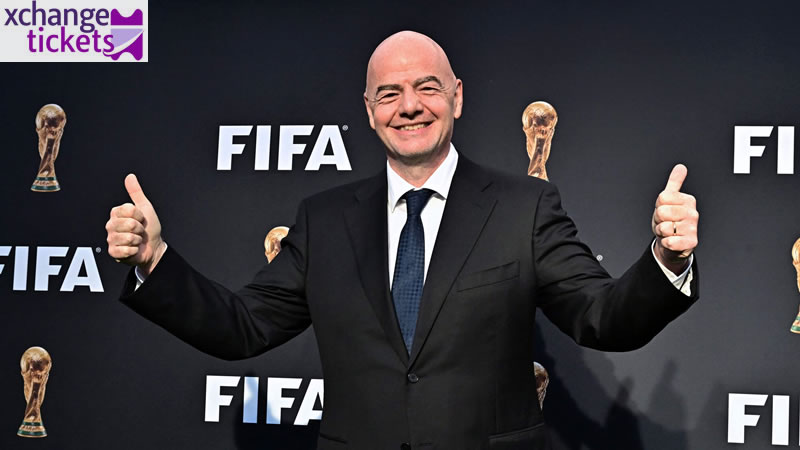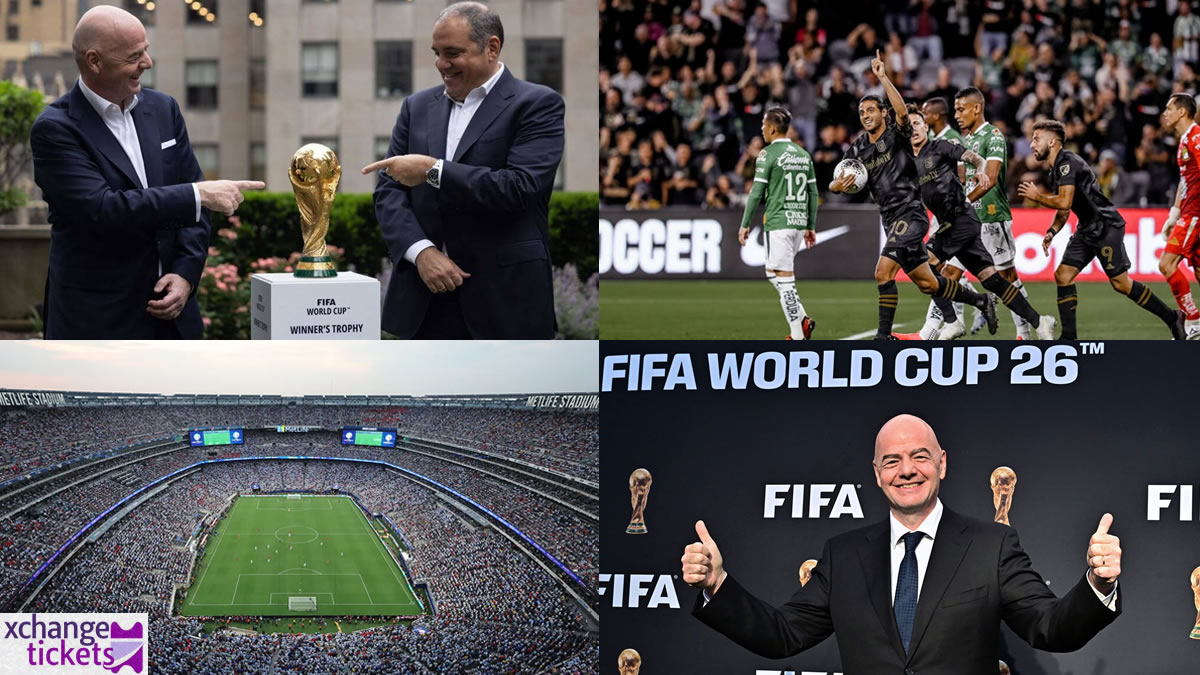On November 14, FIFA announced a significant shift in how it will manage and deliver the upcoming FIFA World Cup 2026, marking a departure from its traditional approach. Historically, FIFA has collaborated closely with a host country’s Local Organizing Committee, typically formed by that nation’s football federation, to handle tournament logistics.
Get ready for an electrifying experience at FIFA World Cup 2026! Secure your tickets today for the USA FIFA World Cup Tickets and witness the thrilling matches on football’s grandest stage. This is your chance to be part of the action-packed excitement as the world’s best teams compete for glory. Join us in supporting our team and experience the passion, drama, and unforgettable moments of this historic tournament.

At a recent panel discussion at the Soccerex Convention in Fort Lauderdale, Florida, John Kristic, one of the leaders instrumental in securing the World Cup bid, highlighted the scale and complexity of this updated approach. According to Kristic, FIFA’s new strategy requires a level of city-focused coordination and management that is unprecedented for the organization.
Despite FIFA’s proactive involvement at the city level, there are concerns that the organization has been slow to initiate planning and leadership efforts, leaving some stakeholders feeling uneasy about the progress with just over a year and a half remaining until the tournament kicks off. The decision to centralize control with FIFA rather than local federations marks a transformative.
FIFA 2026: Delivery City Leaders Share Unique Goals
At the Soccerex Convention in Fort Lauderdale, panelists shared varying perspectives on FIFA’s decision to revamp the management model for the FIFA World Cup 2026, underscoring both the collaborative spirit and the unique challenges involved. While John Kristic and other panelists acknowledged the immense complexity of the undertaking, they also highlighted the experience and capabilities of the host cities.
Celebrate the pinnacle of International Football at the FIFA 2026 featuring powerhouse teams and electrifying showdowns across the United States, Canada, and Mexico. Secure your Canada FIFA World Cup Tickets now to witness football brilliance live! Hurry, tickets are selling fast!

Lisa Lutoff-Perlo, who leads Miami’s host committee, emphasized that hosting the FIFA World Cup is more demanding than a single major event like the Super Bowl. With Miami set to host seven matches, she compared it to staging seven Super Bowls in 30 days. Joining Kristic and Lutoff-Perlo on the panel were representatives from Boston, Los Angeles, and Atlanta, collectively responsible for nearly a third of the FIFA World Cup 2026 matches.
Despite the competitive nature of the cities involved, they are finding ways to collaborate under the World Cup new model, which has required city-based host committees to work together more closely than ever before. Lutoff-Perlo noted that this structure has fostered a cooperative environment, although each city envisions success slightly differently based on its own goals and logistical challenges.
FIFA World Cup 2026: Host Cities Focus on Financial Impact and Legacy
During the Soccerex Convention panel in Fort Lauderdale, Lisa Lutoff-Perlo, head of the Miami 2026 host committee, outlined her three main objectives for Miami’s World Cup events. First, she aims to make Miami’s hosting experience a standout that other host cities will admire. Ronaldo Eyes FIFA World Cup 2026 Amid Continued Criticism.
FIFA World Cup 2026: Boston’s host committee leader, Jon Persch, expressed a different vision. Focusing on cultivating a unique identity highlighting the city’s historical significance. Persch emphasized that Boston, where organized soccer in the U.S. reportedly began in the 1600s. Will draw on this heritage to create a meaningful experience for visitors and residents alike.
For Atlanta and Los Angeles, geographical factors play a key role in shaping their approach. Dietmar Exler, who heads the Mercedes-Benz Stadium in Atlanta, explained that each city’s stadium. And surrounding areas provide distinctive opportunities for fan engagement and logistical planning. By tailoring their strategies to the strengths of their locations.
Football World Cup: Concacaf Partnership Key to LA’s Soccer Legacy
At the Soccerex Convention, representatives from various FIFA World Cup 2026 host cities. Shared their visions and priorities for the upcoming tournament. Atlanta’s Mercedes-Benz Stadium, with an impressive 50,000 hotel rooms within a 15-minute walk. Aims to provide visitors with a seamless and enjoyable experience. Hoping to make the stadium synonymous with the FIFA World Cup and soccer.

Adolfo Romero, head of operations for Los Angeles’ SoFi Stadium and Hollywood Park. Highlighted LA’s distinct advantage as a cultural hub and entertainment capital. The sprawling 300-acre venue offers significant potential for fan engagement. Still, Romero emphasized that Los Angeles already boasts a thriving soccer ecosystem.
Romero stressed that LA’s goal is not only to host a successful World Cup. But also to build lasting partnerships with Concacaf. The regional governing body for soccer, as a means to sustain soccer’s impact. And presence in the city long after FIFA’s event concludes. This approach, he noted, would allow Los Angeles to cultivate a soccer legacy that extends beyond the World Cup. Fostering ongoing growth and engagement in the sport across the region.
We are offering FIFA World Cup 2026 Tickets. Football admirers can get FIFA 2026 Tickets through our trusted online ticketing marketplace. Xchangetickets.com is the most reliable source for booking Football World Cup 2026 Tickets. Sign up for the latest Ticket alert. Don’t miss out on the chance to be at the heart of football history grab your tickets now and be there for the ultimate showdown!

Leave a Reply